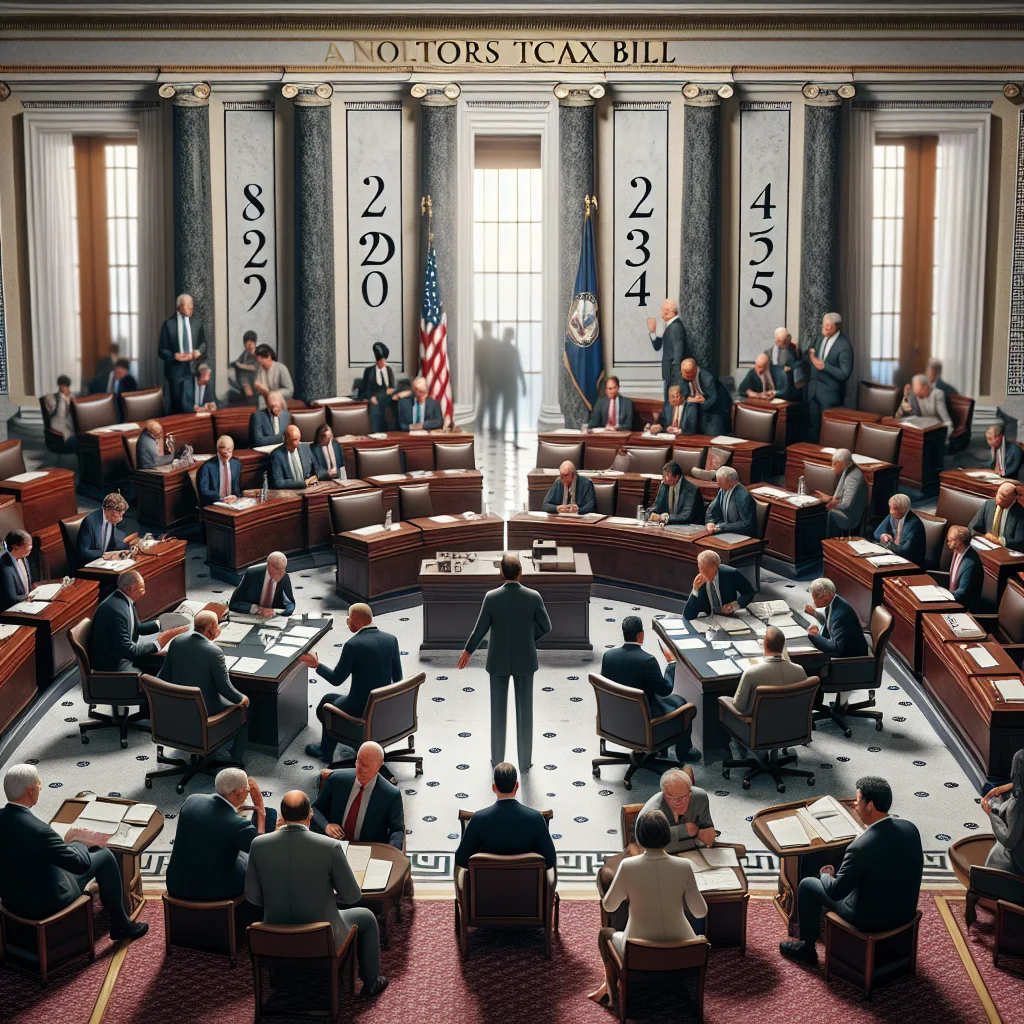
Senate Narrowly Moves Trump-Backed Tax Plan Forward
WASHINGTON, D.C. — The Senate on Monday advanced a sweeping tax reform bill championed by former President Donald Trump and the Republican leadership, setting the stage for a contentious vote later this week. The proposed legislation, which would deliver significant tax cuts to corporations and high-income earners, cleared a key procedural hurdle amid intense GOP efforts to secure the necessary support.
GOP Faces Tight Vote Margin
Republican leaders spent the weekend negotiating with a handful of moderate and fiscally conservative senators who have expressed concerns about the bill's long-term impact on the federal deficit and middle-class tax rates. With Democrats united in opposition, GOP lawmakers can afford to lose no more than one vote in the closely divided 51-49 chamber.
"We are continuing to work with our colleagues to make this bill the best it can be for American families and businesses," said Senate Majority Leader Mitch McConnell, emphasizing the party's commitment to enacting tax relief ahead of the 2026 midterm elections.
Key Provisions of the Tax Bill
- Corporate Tax Reduction: Lowers the corporate tax rate from 21% to 18% starting in 2026.
- Individual Rate Adjustments: Reduces the top individual tax bracket from 37% to 33% for income earners above $400,000.
- Child Tax Credit Expansion: Increases the maximum child tax credit to $3,600 per child.
- State and Local Tax Cap: Maintains the $10,000 cap on state and local tax deductions, a point of contention for senators from high-tax states.
- Sunset Provisions: Some individual tax cuts would expire in 2030 unless renewed by Congress.
Democratic Opposition and Economic Concerns
Democrats argue that the bill disproportionately benefits wealthy Americans and corporations, while adding over $1 trillion to the national debt over the next decade. Senate Minority Leader Chuck Schumer called the legislation "a giveaway to the rich at the expense of working families." Several nonpartisan analyses, including reports from the Congressional Budget Office and the Joint Committee on Taxation, echo concerns about the bill’s potential to widen income inequality and increase the deficit.
Next Steps
With debate expected to continue through the week, Republican leaders are under pressure to secure final passage before the July 4th recess. The outcome could have far-reaching implications for the U.S. economy and the 2026 electoral landscape, as both parties position themselves on fiscal policy ahead of the campaign season.
Should the Senate approve the bill, it would proceed to the House of Representatives, where Republican leaders have signaled strong support. President Joe Biden, who has criticized the proposal, is expected to veto the legislation if it reaches his desk.












